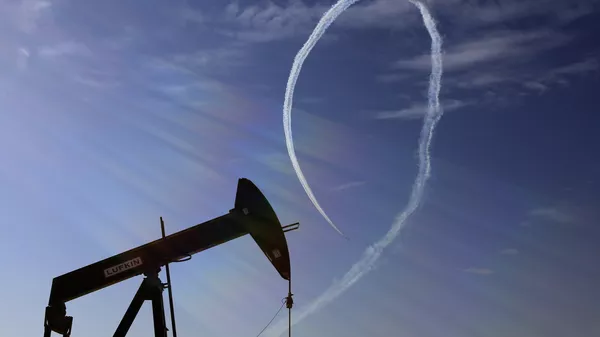Sputnik discussed Trump's claim with Gawdat Bahgat, professor of National Security Affairs at the National Defense University's Near East South Asia Center for Strategic Study.
Sputnik: The White House has backed away from Trump's claim the Riyadh will boost oil production. What might lie behind Mr. Trump's two-million-barrel increase claim?
Gawdat Bahgat: At the end of the day, Saudi Arabia is a sovereign country, it makes its own decisions and, for sure, the United States like any other country has its own interests and there are ongoing talks between President Trump and the Saudi king, King Salman, and other leaders. For sure, every country tries to promote its interests; the United States has an interest in the stability of the oil market and low prices, and Saudi Arabia is a close ally. So it's not surprising that the two leaders talk and it's not surprising that President Trump asked the Saudi King to increase production. But at the end of the day, Saudi Arabia, like any country, will do whatever it believes is in its best interest.
READ MORE: Iran Urges OPEC Not to Boost Oil Output Amid Alleged Saudi Deal With Trump
Sputnik: Washington and Riyadh have agreed to maintain the stability of the oil market, how can this be achieved now?
Gawdat Bahgat: At the end of the day, the major players in the global oil market are oil companies and supply and demand and prices respond to changes in supply and demand, and now it looks like the global market is close to a balance. Supply and demand are almost the same. Sanctions have been used for a long time by many countries and now, with sanctions on Iran, Iran is trying to also find ways to sell its oil, it's not clear yet if Iran will succeed, or if other countries, most likely, China and probably India, will continue importing Iranian oil. There are other ways; instead of just taking cash, Iran is trying to sign bilateral agreements with oil importing countries to export its oil. So the next few months will be very important to watch: how Iran will succeed and how the United States is determined to maintain sanctions.
Sputnik: What's your take and feeling regarding this statement that the Iranian first vice president was quoted saying that anyone trying to take away Iran's oil market share will pay for it, what retaliation could Tehran have in mind with regard to that statement?
Gawdat Bahgat: For sure, Iran is not happy with this statement by Saudi Arabia that they will increase production. From the Iranian perspective the Iranians believe that this is part of regime change. The Iranians believe, rightly or wrongly, that the American policy is to change the regime in Tehran and one way to change the regime is to apply heavy economic pressure, more sanctions, so the regime in Tehran will not be able to meet the needs of its people and eventually the regime will fall. Iran is not out of options but it is also true that Iran cannot stop Saudi Arabia or other countries from increasing production, but the Iranians have been under sanctions from 1979 till today, they learned how to avoid sanctions, how to find ways to sell their products, so officially Iran will not be able to stop Saudi Arabia.
READ MORE: Trump's Tweet on Deal With Saudi King Makes Oil Prices Plummet
The Iranian oil minister sent a letter to OPEC's president, asking the OPEC organization to stop Saudi Arabia and other countries from increasing production. But OPEC does not have the force to stop any member from doing whatever they believe they need to do. So officially Iran has very limited ability to stop Saudi Arabia but unofficially Iran has been under sanctions for so long and the Iranians have their own ways to smuggle their oil, to find ways to sell their oil.
Views and opinions expressed in this article are those of the contributor and do not necessarily reflect those of Sputnik.




